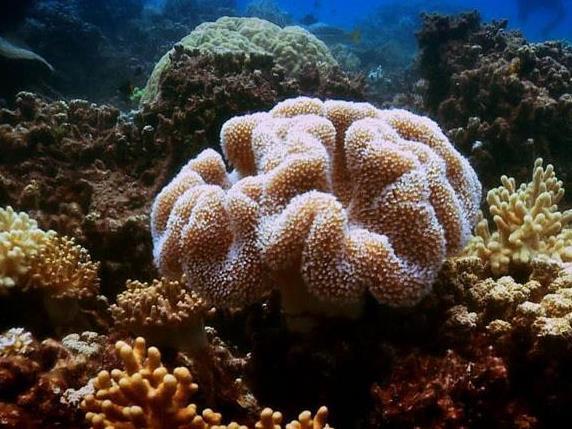An image from Reef Killers, produced by Chemical Media in 2013
Wheeler has taken a minority stake in Chemical Media, the company which now owns the media business he established as a sideline at Lonely Planet.
It is the latest act in a long drama in which Lonely Planet Television was sold to BBC Worldwide. It was subsequently dissolved and recreated by ex-employees as Chemical Media. The business has now come full circle with Wheeler’s investment. Therein lies a wonderful tale of capitalism, survival and a certain amount of cosmic justice.
Tony and Maureen Wheeler started Lonely Planet Travel in 1973, and built a publishing empire in Melbourne’s Footscray. In 2001, it started Lonely Planet Television, with EP Tony Jackson, producer Joany Sze and development producer David Collins ultimately as its creative core.
Saying they wanted more time to travel, Tony and Maureen sold 75% of Lonely Planet to BBC Worldwide in 2007, and the final 25% in 2011. The total amount of money was said to be £130.2 million. Last year it was sold to a reclusive US discount tobacco seller called for £51.5m. While the BBC Trust was scathing about the failure to integrate Lonely Planet at the BBC, the television arm functioned pretty independently and the headquarters stayed on the banks of the mighty Maribyrnong River.
In 2011, BBC WW axed the entire television department. According to Producer Joany Sze on the phone, ‘We were treated very fairly by BBC Worldwide at the time.’ They were able to finish their projects, and given opportunities to continue to work together.Instead, they left, ran the vacuum cleaner over their home offices, pooled some severance pay, and set up Chemical Media. David Collins explained in an email that ‘Chemical picked up the mantle that Lonely Planet dropped when BBCW took over, and run with it unencumbered by all the baggage that came with being owned by (a slightly confused) UK media Goliath.’
They had fabulous contacts and respect in the marketplace. For two years they planned their expansion while they made projects for Al-jazeera and Lonely Planet.
Now they have two major series in production for Discovery Asia and Discovery International, and have set up a formal production office in Yarraville, not far from Lonely Planet. Wrote David, ‘I guess Chemical’s success is, in some way, living proof that there was a business for the taking if only the BBC had wanted it, and been better focused.’
‘An opportunity like this only comes once in a lifetime,’ said Joany, ‘to work with partners we have worked with for more than a decade and trust implicitly, and have an incredible set of skills within the three of us. We wanted to continue the momentum we achieved at Lonely Planet, and continue the relationships.’
Meanwhile, Tony and Maureen Wheeler have developed the Planet Wheeler Foundation, currently supporting over fifty projects in the Third World, and funded the Wheeler Centre attached to the State Library of Victoria.
Behind the scenes, Tony never dropped his association with Lonely Planet Television, which he said he would maintain when the couple made the original sale. According to Joany, he had always been intensely committed to the production arm, and worked closely with the key trio.
When I asked him why he was back in television, I was expecting a serious answer connected to morality and the significance of globalism. After all, he has been writing a book, Darkside, which takes up many of the grimmer themes of international politics.
Instead, he said, ‘It just sounded fun, and interesting. I’ve also come back into publishing. We bought into Text Publishing, the Melbourne publishing house.
‘This is certainly not philanthropic – it is a business but a fun opportunity, and the fun element is more important than the financial one.’
‘I’m fascinated by travel. In Chemical Media they are doing food programs, buts its food with travel – if they had said solely food, I would have said no. If it was a reality TV series, I would have said ‘no way!’.
‘It doesn’t interest me at all. I’ve never watched Big Brother and I never want to. You’d have to lock me into a prison cell first.’
Having benefited from a business which made money in the Third World, he does feel an obligation to put something back. But his media interests are not part of that agenda. While he was disappointed that Lonely Planet Television did not grow more under the BBC, he is a pretty determined non-television watcher.
‘These things interrupt my day, and they don’t come far enough up my wish-list,’ he said.
His break with Lonely Planet is pretty total. He knows nothng of the currnet owners, was surprised they bought it, and seems to be mildy curious about the ways in which they will change it.
At least the dollar is coming down – with a business in which earnings were in sterling, the USD and the euro, and a large part of the costs in Australian dollars, the problem was a perfect storm of currency difficulties.
Chemical Media is taking Tony Wheeler’s History of Travel to Realscreen next week. A 4×60 blue chip series exploring the history of travel from the Seven Wonders of the Ancient World to the first tourists in outer space. It is Wheeler’s first active collaboration with Chemical, and early interest is said to be positive.





